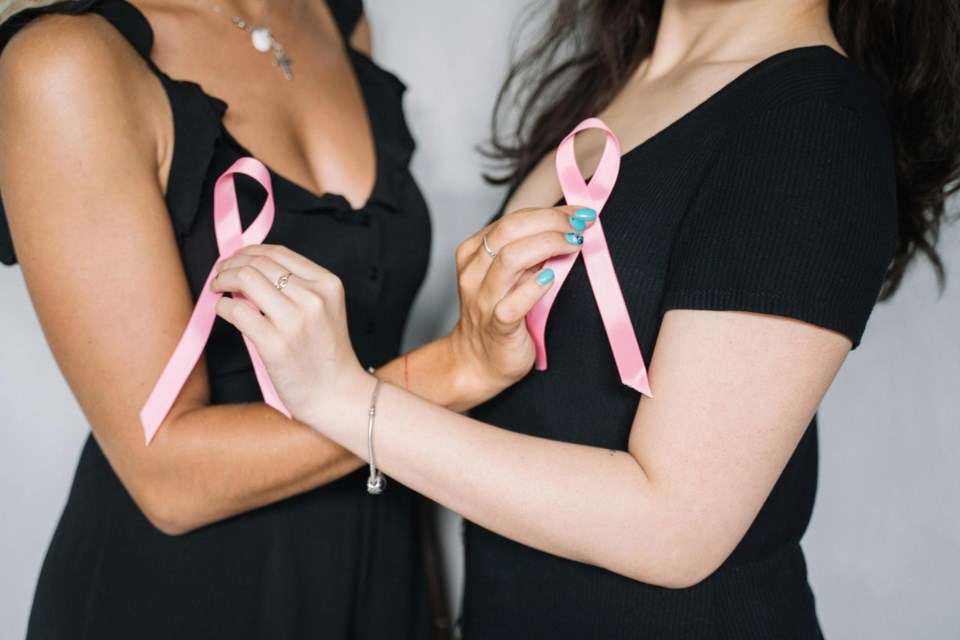The topic of breast cancer has always been personal. I am a nurse, but I once stood on the other side as a caregiver, witnessing firsthand the emotional and physical toll this disease can take. I saw how breast cancer can strip away a woman’s sense of identity and put her to the ultimate test. Yet, I also saw hope and resilience.
Seeking care remains the most crucial action in the fight against breast cancer. Some women delay care, while others may not have access to it, but seeking help early is truly critical. The secret is to understand your body, especially your breasts.
If I were to step into an elevator with eight women, statistically speaking, at least one of us will eventually receive a breast cancer diagnosis. It’s an alarming reality and a gut-wrenching feeling. We can’t ignore that breast cancer also affects men. About less than 1% of breast cancer cases occur in men, which is a reminder that awareness should be for everyone.
Breast cancer touches nearly every family, a circle of friends or community in some way. According to the American Cancer Society, in 2024 alone, about 310,720 new cases of invasive breast cancer will be diagnosed in women in the United States. Additionally, about 56,500 new cases of ductal carcinoma in situ (DCIS), a non-invasive form of breast cancer will be diagnosed, and sadly, around 42,250 women will lose their lives to this disease.
But the silver lining of it all is that there is hope. Thanks to advancements in early detection and treatment, breast cancer mortality rates have been on a steady decline. Women today are less likely to die from breast cancer than in previous generations, but we still have a long way to go, particularly when it comes to addressing disparities in healthcare. For example, Black women have a 38% higher mortality rate than white women, despite being 5% less likely to be diagnosed with the disease. Similar gaps exist for Asian American, Pacific Islander, Native American and Hispanic women. These disparities must be addressed by making sure that every woman regardless of race, ethnicity or income has access to screening and treatment.
So, what can we do? Awareness is the first step, but prevention is the next. Here are some tips for breast cancer prevention and early detection:
- If you have a family history of breast cancer or other risk factors like BRCA gene mutations, consult with your healthcare provider about screening and prevention strategies.
- Regular physical activity, a balanced diet rich in fruits and vegetables, maintaining a healthy weight, limiting alcohol and avoiding smoking can all lower your risk of developing breast cancer.
- Perform self-exams monthly to become familiar with how your breasts look and feel. Here’s how to do it:
Step 1: Stand in front of a mirror with your shoulders straight and your hands on your hips. Look for changes in size, shape or symmetry. Pay attention to any dimpling, puckering or changes in the skin.
Step 2: Raise your arms and look for the same changes.
Step 3: While lying down, use your right hand to feel your left breast and your left hand to feel your right breast. Use the pads of your fingers in a circular motion, covering the entire breast from top to bottom and side to side.
Step 4: Feel for any lumps, thickened areas or discharge from the nipple.
According to the American Cancer Society, women aged 40 to 44 can choose to start annual mammograms, while women aged 45 to 54 should get a mammogram every year. After 55, screenings can be done every two years or continue annually, depending on your preference and health history.
Breast cancer may still be a difficult topic, but the more we talk about it, the more strength we have to fight it. Let’s continue to break the silence, spread awareness and give every woman a fighting chance.
Dudmire Belizaire, MSN, FNP-BC is a nurse practitioner in the Breast Surgery-Comprehensive Breast Center at NYC Health + Hospitals/Kings County.




